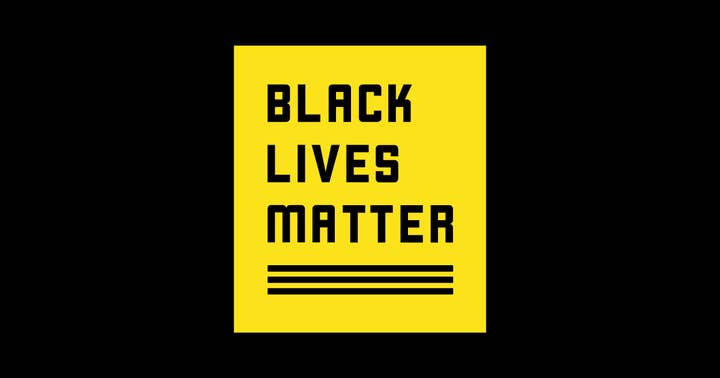Too little, too shy: The gaming industry's response to #BLM | Opinion
Gaming companies want to get away with tokens of sympathy for #BlackLivesMatter -- Don't let them
If someone told you that in 2020, there is a multi-billion-dollar, male-dominated industry that has a decade-long track record of shutting down legitimate criticism about under-representation of people of colour, sexualisation of women, appeasement of authoritarian governments and an occasional glorification of violence there is a chance you'd return the question and ask: "Which one?".
In less somber times, this would be cause for concern. However, as the US approaches a third week of protests against police brutality and racial injustice, it is clear that we are way beyond "concern" on this, as much as we are beyond "awareness" on our planetary climate crisis. And yet, we are about to let this industry off the hook, unscrutinized, yet again.
Studios have been serving players with politically-charged material for decades... political issues have inspired some of the most successful industry titles to-date"
I am talking about gaming, of course. Assisted by the unprecedented increase in accessibility thanks to smartphones and its normalization in popular culture, video games are now a market worth over $150 billion dollars, exceeding both music and movie industries. Combined. Twice over.
But there is this despicable signature move of video game companies that doesn't get nearly enough media coverage: Their capability of convincing millions of citizens that their platform is not a political one. In fact, going through Twitter and Reddit, gaming forums and even schools preparing the future generation of game artists and programmers, there is this dangerous phrase, repeated like a mantra, over and over again: "I don't want politics in games."
Nothing could be further from the truth. Studios have been serving players with politically-charged material for decades: The critique of runaway capitalism in Bioshock, resisting oppression through violence in StarCraft, religious dogmatism in Halo -- arguably, political issues have inspired some of the most successful industry titles to-date.
"What I mean is, I don't want real-life politics in my games," I hear them usually follow up.
That is the moral equivalent of seeing a world on fire, then looking the other way. Like it or not, politics are already deeply intertwined with gaming, and they are not going anywhere. When professional players get suspended for using their platform to take a political stance; when games are routinely edited or banned to please a local authority prior to a release; when studios fail their diversity efforts -- or pretend that they don't need them -- all of this is politics at play.
"Reform and structural change will not materialize if we turn a blind eye to injustices. And video game companies have been sitting on the sidelines for too long"
The latest example unfolds before our very eyes, as corporate communication teams are coming up with predictable, unprovocative and carefully worded messages on their social media accounts, after it was already safe for them to do so, and when reputational damage for not taking a supportive stance was greater than the backlash from the conservative-leaning, "all-lives-matter" wing of their audience.
Video games are a cultural product. and like other cultural products, they serve as vehicles for messages -- many of which are political. In the same way many citizens expect celebrities to take a stance and lead the charge on societal issues of their time, it is reasonable to demand that gaming companies do the same -- and position themselves on the right side of history, no matter the fallout.
I lead an indie games studio. And as large and small companies, as individuals and citizens, we must all do better in dealing with political issues tearing our societies apart. Reform and structural change will not materialize if we turn a blind eye to injustices. And video game companies have been sitting on the sidelines for too long.
They have a platform, they have millions of followers and the world needs them to step up and act to protect the oppressed through their games, through their CSR efforts and through their corporate culture.
We need the industry to resemble the audiences that they create for. According to the 2019 survey by the International Game Developers Association, only 2% of respondents self-identified as African or African-American, and less than 20% identified as non-white. We owe it to our increasingly diverse communities to do better than this. We need to be talking more about the amazing work done by Kiro'o Games and other indie developers of colour who do not always have the privilege of standing in the spotlight of renowned media outlets.
Most of us working in gaming have grown up mesmerized by universes, stories and experiences made possible by video games. They have contributed to who we are, and the way we view the world, and now it is time for us to give back to the world. In these times of need, we must urge the authorities to de escalate, we must stand with the protesters and express our solidarity, because Black Lives Matter.
However, after all the speeches are made, and all the tweets are sent, we will still have a lot of introspection and homework to do as an industry.
Pavel Afanasiev is the cofounder of Northern Lights Entertainment, an independent studio based in Paris, France. The studio is currently working on a massively multiplayer strategy game, Nebulae, focused on player-led political experimentation with various political regimes.
